This time he doesn’t mention declining EROEI which further reduces available net energy per capita.
- 75 Posts
- 23 Comments

 2·19 hours ago
2·19 hours agoRelevant passage:
Applying our model to today’s atmosphere-ocean state with an enhanced anthropogenic P flux from land in a sustained 130% excess over average Phanerozoic continental P weathering rates will ultimately trigger the anoxia-P-dependent cascade again in a manner that locks the oceans into an extensively anoxic state for more than half a million years. The oceanic redox state passes a tipping point when the oceanic P/O2 ratio is ∼2.3 and continues into a eutrophic ocean state with 3.5 times higher P/O2 than today and sustained high productivity and organic C burial. The Earth system tips back into the oxic ocean state as atmospheric O2 levels rise and cause oceanic P/O2 ratio to decline below the tipping point (Figure 4). The dynamics of the event depend critically on the formulation of the anoxia function, which is assumed represented by a sigmoidal function with parameters calibrated in 3D (GENIE)64 and 1D (CANOPS)65 Earth System models. The new sedimentation-dependent formulation of the benthic P flux does make the oceans more sensitive towards runaway anoxia when anoxia develops in shallower depths, but our model still requires a long period (>104 years) of sustained P input to pass the tipping point for global marine anoxia today. With oceanic P input at a sustained 130% excess over average Phanerozoic continental P weathering rates for ∼120 ka, anthropogenic forcing will eventually trigger the anoxia-P-dependent cascade in a manner that locks the oceans into an extensively anoxic ocean state for more than 0.5 Ma until oceanic P/O2 begins to decline as a result of rising atmospheric O2 levels (Figure 4).

 12·22 hours ago
12·22 hours agoRemoved by mod

 2·22 hours ago
2·22 hours agoLooks fine to me. I’m an ordinary human just like you.

If you look at the numbers, we’re not transitioning away from fossil to renewable. We’re increasing fossil use while adding renewable on top of it. The fraction of fossil in the primary energy use remains about the same.

 1·8 days ago
1·8 days agoThe top level issue is overshoot (of the global ecosystem carrying capacity), and the climate catastrophe is but one facet of it.

 10·12 days ago
10·12 days agoThanks. Hopefully this will fix the broken images on some links.

 43·12 days ago
43·12 days agoPeople deserve the chance of making fools of themselves in public.

 402·13 days ago
402·13 days agoFalse dichotomy, so neither. Things are more work-life balancey in Europe.
Daily surface air temperature, world https://climatereanalyzer.org/clim/t2_daily/?dm_id=world

 3·22 days ago
3·22 days agoBSW taking 6% out of box (way more in the East) got to count for something.
We had to move our community from lemmy.ml for censorship reasons.
Thank you for your work. Some potential regression: post title selection from the URL shows up correctly but can’t be selected.

 1·25 days ago
1·25 days agoThanks for the sidebar suggestion. The plan was to set the old community to mod-post only once the discussion ended. So probably very soon.
Very few users are active submitters unfortunately. It’s not an issue of scale (size only brings problems) but of quality activity.

 1·26 days ago
1·26 days agoBetween 2019 and 2023 the EEI (Earth Energy Imbalance) tripled, from +0.6 W/m2 to +1.8 W/m2. Source: Richard Crim.
This is probably at least a partial explanation for https://climatereanalyzer.org/clim/sst_daily/
Current renewables are fossil fuel multipliers. This is not a basic law of physics, but we’ve almost ran out of time and fossil resources to fix that. What’s worse is that we’re not even seriously attempting it.
We’re not giving up fossil fuels, fossil fuels are (un)fortunately abandoning us. Which of course brings us to that apocalyptic scenario you mention.
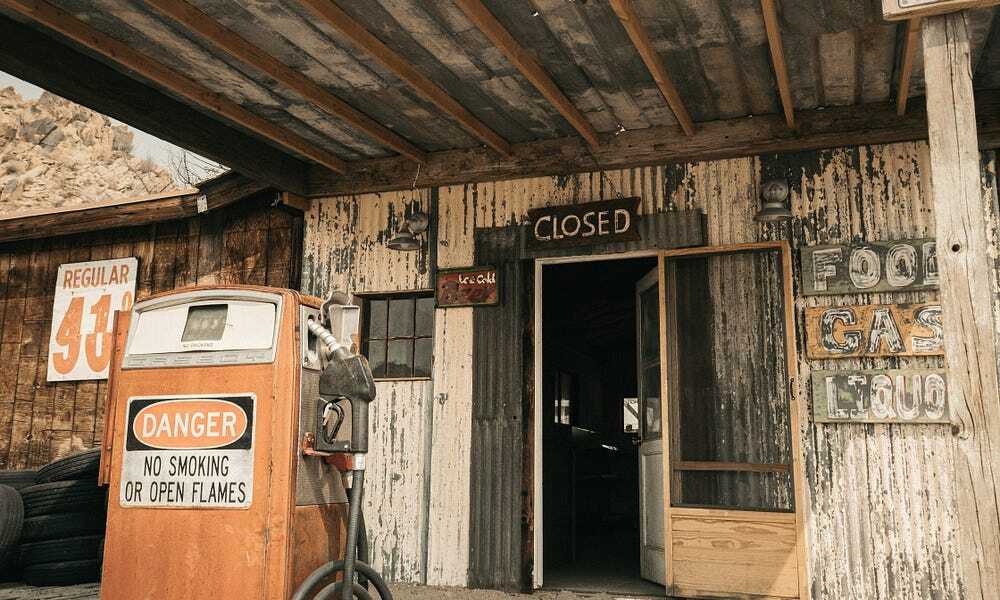


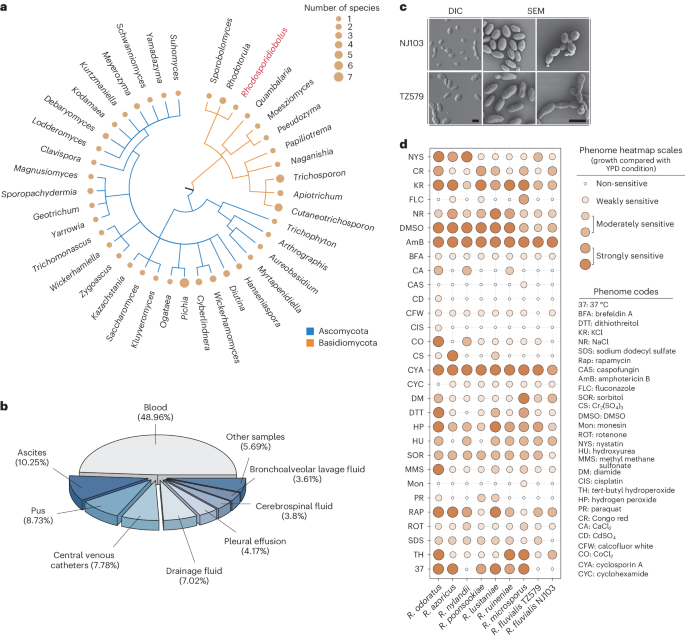
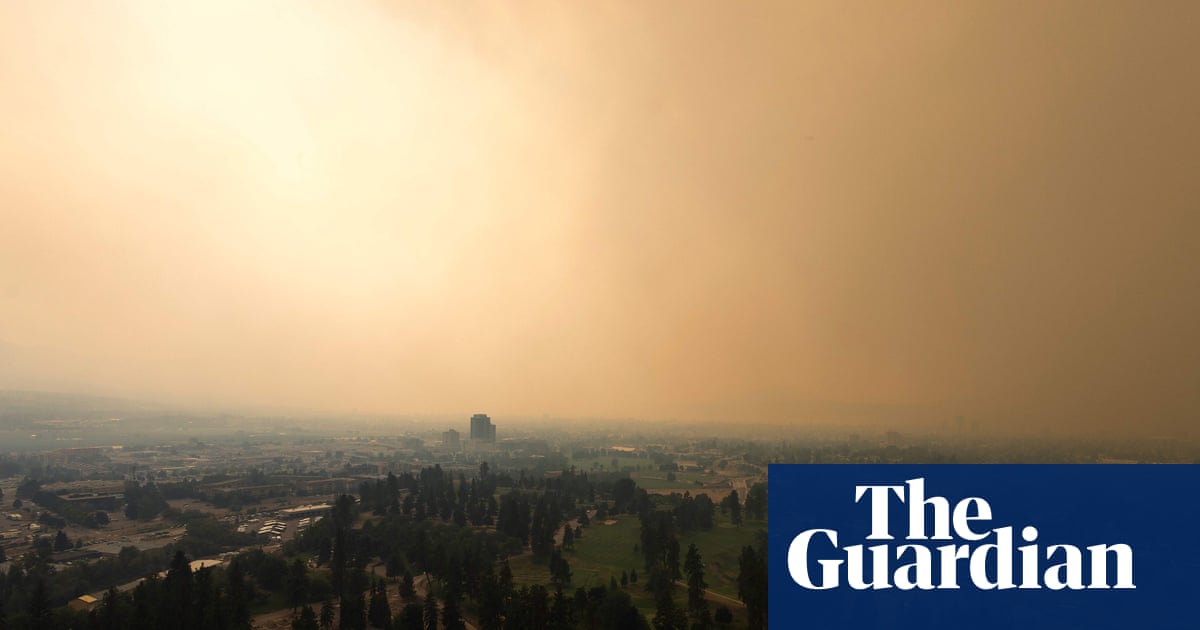
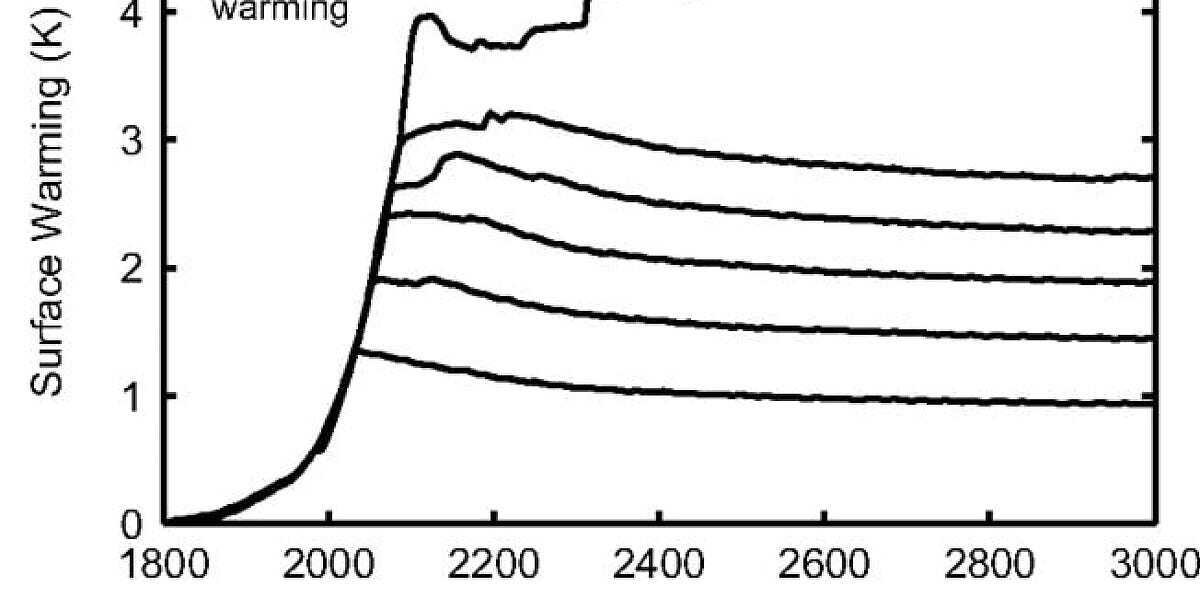
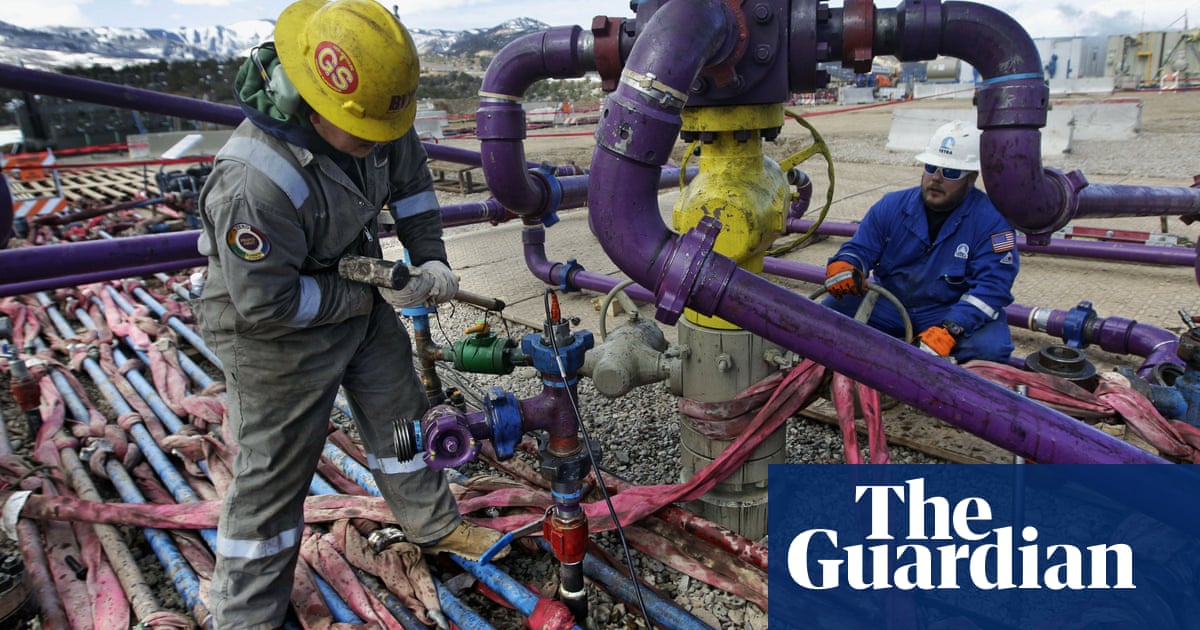
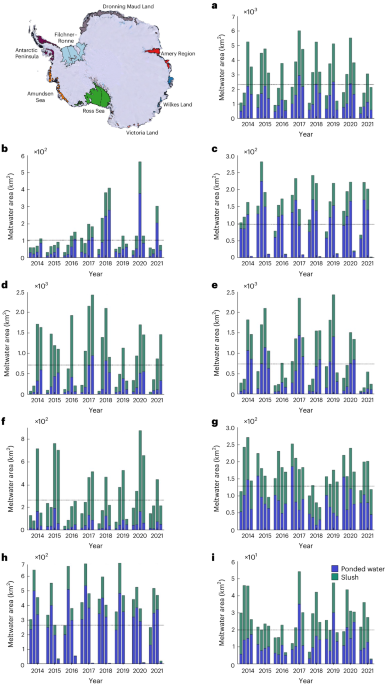
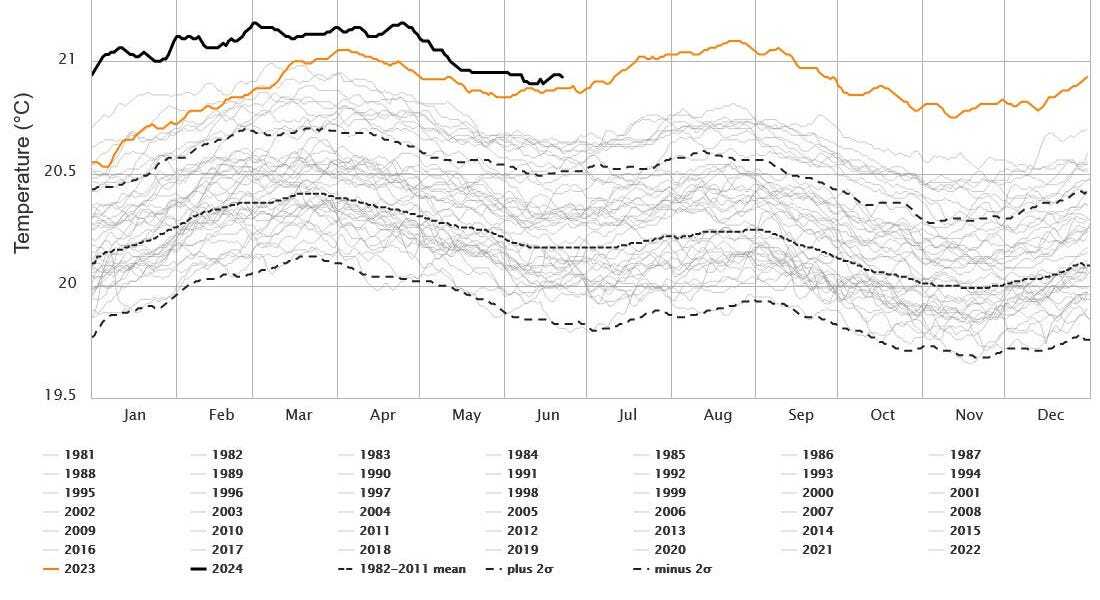
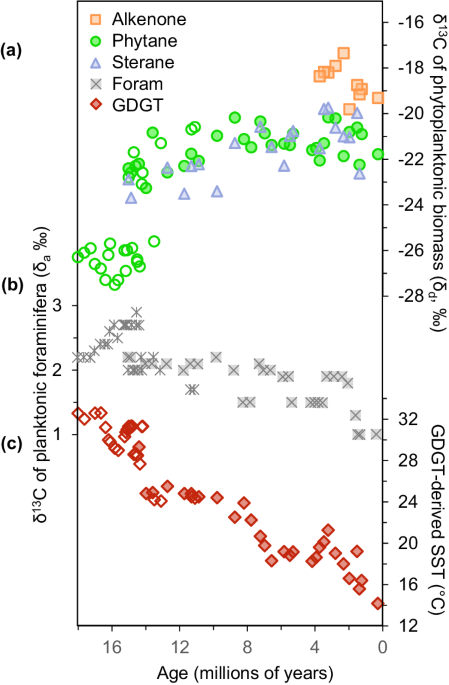


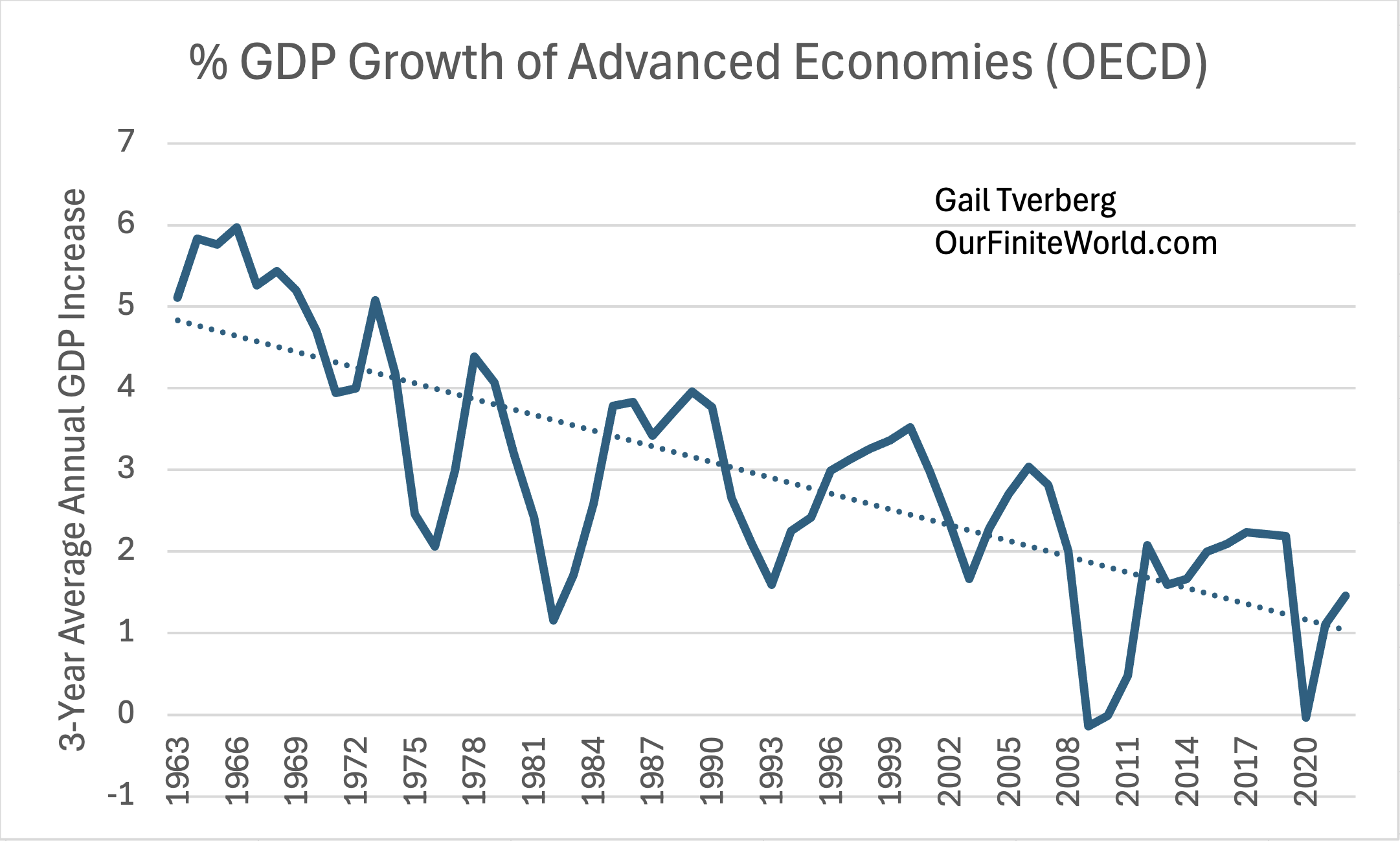



Some bloggers still do. But most people are energy blind, so they fail to see its significance.
But even fracking is on its last legs, yes. And seems the first bottleneck is diesel and bunker fuel, since tight oil is so light while the fracking rigs burn a lot of diesel per unit extracted.